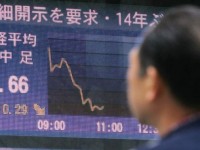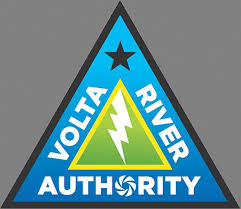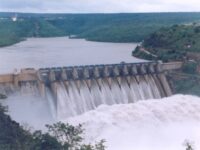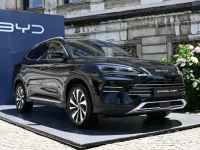 The Volta River Authority (VRA) and the Shenzhen Energy Group, the parent company of Sunon Asogli, have signed a memorandum of understanding to develop 1200 megawatts of coal fired power plant by 2018.
The Volta River Authority (VRA) and the Shenzhen Energy Group, the parent company of Sunon Asogli, have signed a memorandum of understanding to develop 1200 megawatts of coal fired power plant by 2018.
Energy Minister, Emmanuel Armah-Kofi Buah made this known when he took his turn at the Meet the Press Series in Accra last week.
The Chinese, who remain leading users of coal for power generation, believe the resource can do for Africa what it has done and continues to do for developed nations, since the industrial revolution was powered by coal.
“There is some misunderstanding. Coal is always fundamental to thermal energy in the world; it is bigger than oil, it is bigger than gas, bigger than any resources currently in use,” Li Xiaohai, Chairman of Sunon Asogli told the B&FT.
“You can find out about the developed countries: Russia, Japan, China, India, South African, all those countries are still very much reliant on coal. But we don’t talk about it, because we all know there are environmental issues…”
Indeed, coal provides over 60% of power needs in the world even in these days of heightened environmentalism.
Even Germany, a country that itself the ambitious goal in 2010 of producing 80% of its electricity from renewable sources, such as wind and solar, by 2050 relies on coal plants during high-demand times.
Since 1983 the world top coal producer is China; in 2011 China produced 3,520 millions of tonnes of coal – 49.5% of 7,695 million tonnes world coal production, notes “BP’s Statistical review of world energy 2012. In 2011 other large producers were United States (993 million tonnes), India (589), European Union (576) and Australia (416).
In 2010 largest exporters were Australia with 328 million tonnes (27.1% of world coal export) and Indonesia with 316 million tonnes (26.1%), while largest importers were Japan with 207 million tonnes (17.5% of world coal import), China with 195 million tonnes (16.6%) and South Korea with 126 million tonnes (10.7%).
From the forgoing therefore, Li Xiaohai does not see why Ghana should not import coal to solve its recurrent power crisis, which, as it has been established, is fundamental to its growth.
In any case, he argues, it is not all types of coal that are so messy, and through desulphurisation, coal can be burned in a cleaner form.
Ghana has a fundamental energy problem even as its economy is considered one of the fastest growing in the world. Indeed, the World Bank said in 2013 report that Ghana’s energy sector risks becoming “a drag on the economy,” if “large investments” are not made regarding power generation.
“Ghana needs to invest US$4 billion in the next 10 years to make up for the past investment deficit and upgrade the power sector infrastructure,” said the World Bank report titled, “Energizing Economic Growth in Ghana, Making the Power and Petroleum Sectors rise to the challenge.”
“In the past 15 years, Ghana has added about 1,000 megawatts (MW) of thermal generation capacity. As a result, Ghana’s current generation capacity of 2,125 MW is made up of about 50% hydro and 50% thermal plants. Nevertheless, inadequate and unreliable power supply remains a major constraint to future economic growth,” the report added.





